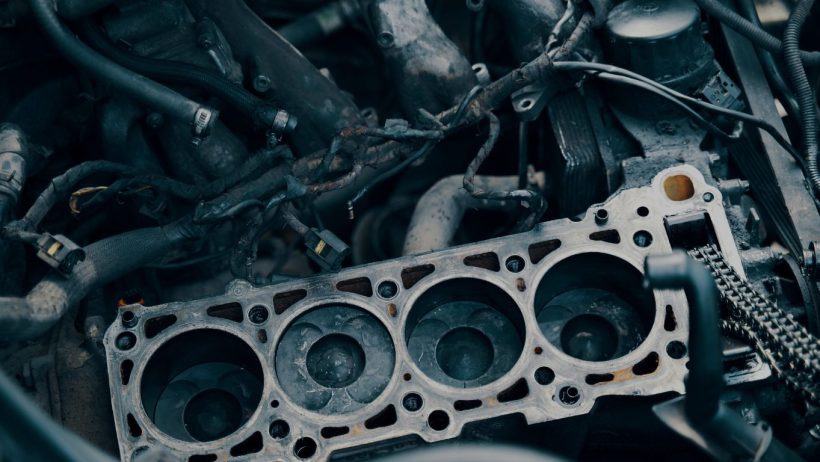If you drive a manual transmission vehicle, the clutch slave cylinder is a crucial component in your car’s hydraulic clutch system. It works alongside the master cylinder to help you engage and disengage the clutch smoothly, enabling seamless gear shifts. Over time, this part can wear out, leading to clutch issues such as difficulty shifting, slipping, or even total clutch failure. If you’re experiencing any of these symptoms, it might be time to consider buying a replacement slave cylinder.
Before making your purchase, it’s important to understand what to look for in a replacement part, how to know when to replace your current slave cylinder, and why selecting the right component matters. For example, a durable Toyota Land Cruiser Clutch Slave Cylinder is designed to withstand tough conditions, but even these tough components need replacing eventually to maintain reliable performance.
Knowing when and how to replace your clutch slave cylinder will save you time, money, and frustration down the road.
When to Replace the Slave Cylinder
Recognizing the right time to replace your clutch slave cylinder is essential to keeping your vehicle’s clutch system functioning properly. Some warning signs to watch out for include:
- Hydraulic Fluid Leaks:One of the most common signs of slave cylinder failure is leaking hydraulic fluid. You might notice puddles or wet spots underneath your car or near the clutch slave cylinder itself. Low clutch fluid levels in the reservoir are another indicator that the cylinder’s seals may be compromised.
- Difficulty Shifting Gears:If you’re struggling to shift gears or hear grinding noises during shifts, your slave cylinder may not be fully disengaging the clutch. This can make gear changes rough or even damage the transmission if left untreated.
- Soft or Spongy Clutch Pedal:A soft or spongy pedal that sinks to the floor without resistance can mean the slave cylinder is failing to maintain hydraulic pressure. This symptom often accompanies internal leaks or air trapped in the hydraulic lines.
- Clutch Slipping or Inconsistent Engagement:When the clutch slips or engages inconsistently, it can reduce power transmission to the wheels and cause unsafe driving conditions. A faulty slave cylinder can be the root cause of this issue.
Vehicles such as the 2002 Chevrolet Cavalier Clutch Slave Cylinder can develop these symptoms as seals and other parts degrade over time, especially with heavy use or poor maintenance.
Addressing these signs early by replacing the slave cylinder can prevent more severe clutch or transmission damage and maintain safe, reliable driving.
What to Look for When Buying
When purchasing a replacement clutch slave cylinder, it’s important to ensure you get the right part that fits your vehicle and meets quality standards. Here are key factors to consider:
Compatibility: Always verify the replacement slave cylinder is compatible with your vehicle’s make, model, and year. For example, a Hyundai Clutch Slave Cylinder will not fit a Toyota Land Cruiser or Chevrolet Cavalier. Using an incompatible part can lead to installation issues and poor performance.
Quality and Brand: Choose a quality part from a trusted manufacturer or OEM supplier. High-quality components use durable materials and meet strict standards for performance and longevity. Cheaper, low-quality parts may save money upfront but often lead to more frequent failures.
Warranty: Look for parts backed by a manufacturer’s warranty. This protects your investment and provides peace of mind should the part fail prematurely.
Material and Build: Consider slave cylinders made from corrosion-resistant materials with robust seals to withstand harsh conditions and last longer. This is especially important if you drive in wet, salty, or off-road environments.
Price vs. Value: Don’t just go for the lowest price. Balance cost with quality and compatibility to get the best long-term value. Investing in a reliable slave cylinder reduces the risk of future clutch problems and repairs.
Ease of Installation: Some replacement cylinders come with installation kits or instructions, making the process easier, especially for DIY mechanics.
Replacing your clutch slave cylinder at the right time and choosing a high-quality, compatible part is crucial for smooth shifting and vehicle safety. Whether you drive a rugged Toyota Land Cruiser, a classic Chevrolet Cavalier, or a reliable Hyundai, selecting the correct replacement slave cylinder will help maintain your clutch system’s performance and extend its lifespan.
If you notice any warning signs or your clutch performance is deteriorating, don’t delay in sourcing the right replacement part. Autozone offers a wide selection of clutch slave cylinders for popular vehicles, backed by expert support to help you find exactly what you need.









